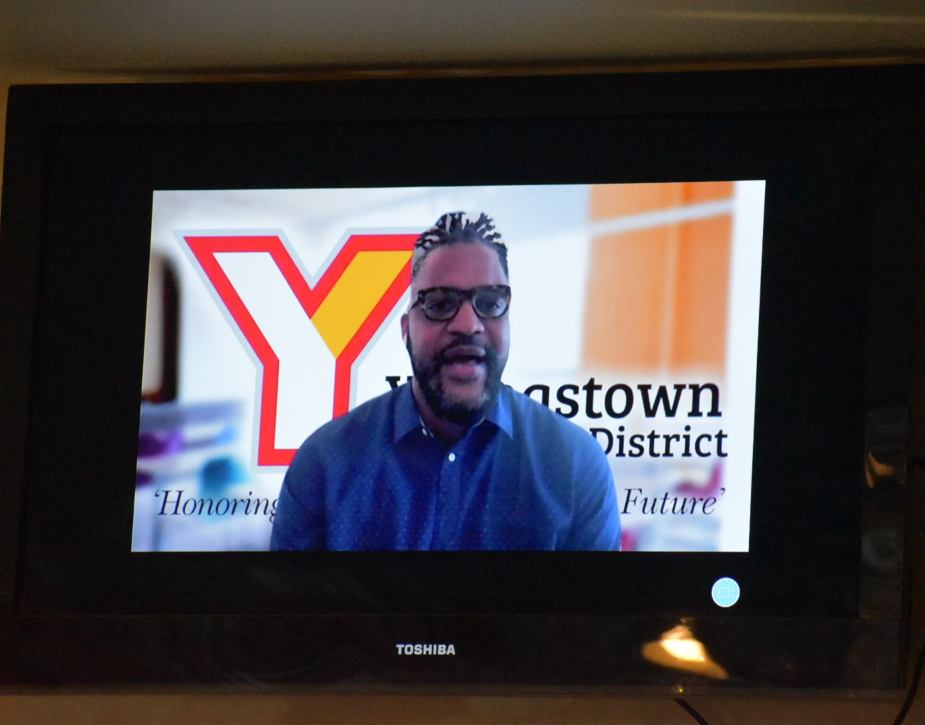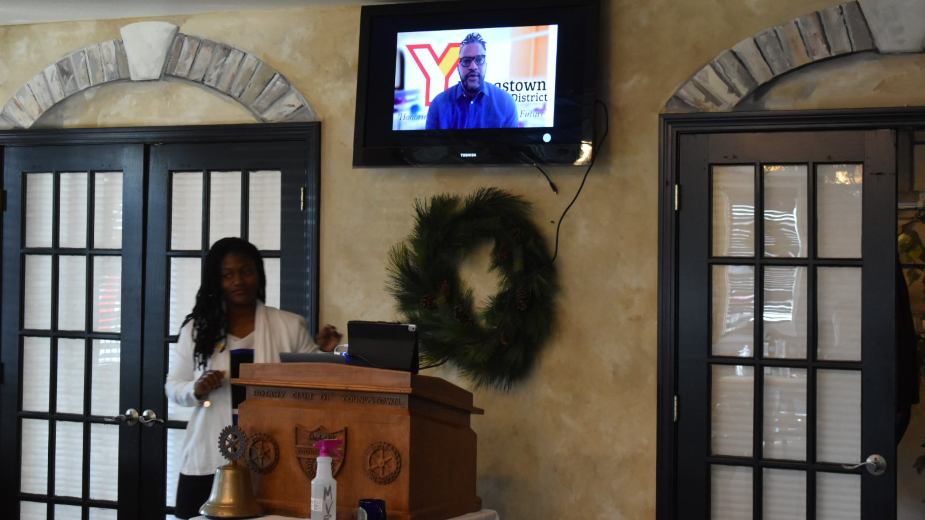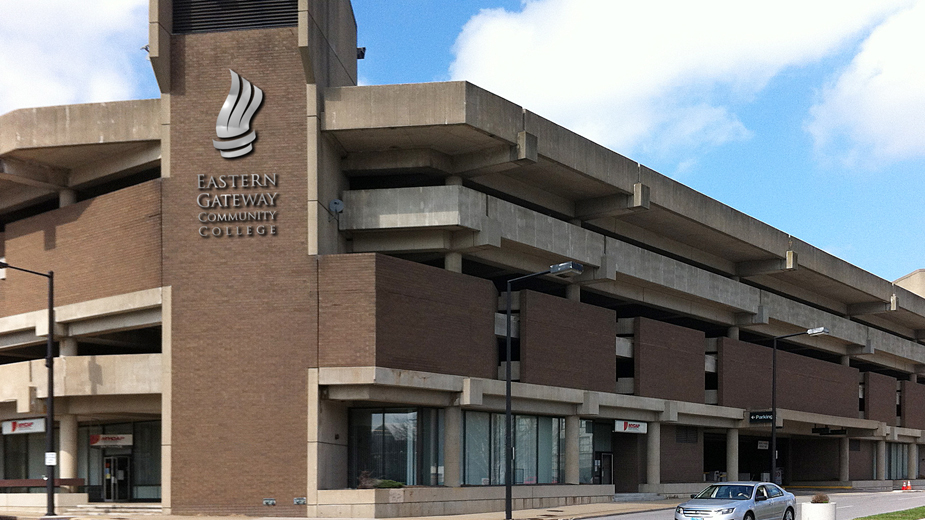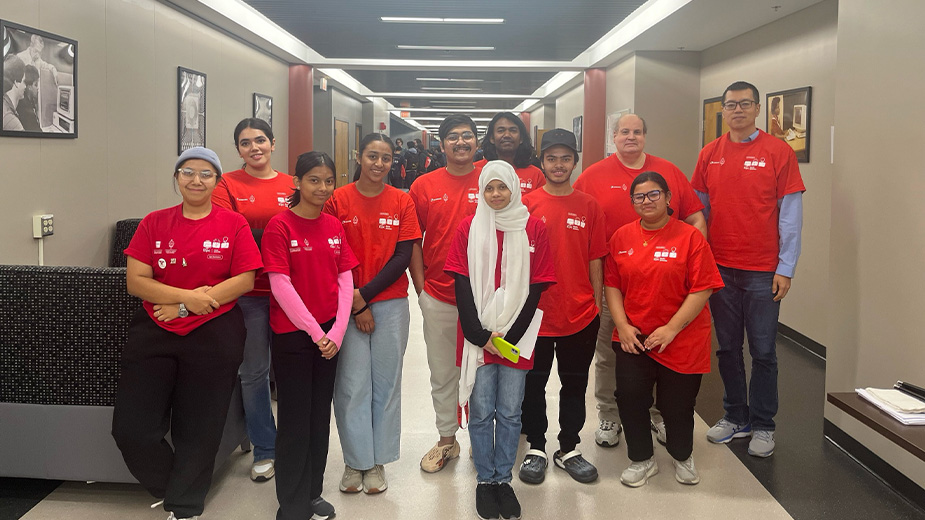Youngstown Schools CEO Wants to Put Himself Out of Work
YOUNGSTOWN, Ohio – The CEO of Youngstown City Schools says doing his job well will put him out of work, but he’s OK with that.
Justin Jennings, who was appointed CEO of the school district in August 2019, shared his insights on his role and the district’s progress during his tenure at Wednesday’s meeting of the Rotary Club of Youngstown.
“My goal is to put myself out of a job,” Jennings said.
Jennings participated in the meeting — which was held at Cassese’s MVR – virtually, as did the majority of the Rotarians who joined the meeting, because of the coronavirus pandemic.
Success – moving the district forward so it no longer is governed by a CEO hired by a state-appointed academic distress commission – creates a “no-job opportunity” for him which is “bittersweet,” but also means the district’s students “are getting what they need to get in our test scores, in our graduation rate, and all those different things are getting raised.”
Deciding to shift to remote learning in March, in the early stages of the pandemic, put the district “a little more ahead of the game” than other districts in the state, Jennings said. All of the district’s students have devices – iPads or other Apple products or Chromebooks, depending on their grade level – and have either home internet service or mobile hotspots for the next 12 to 18 months. Instructors have the equipment they need to teach virtually as well, he said.
“It required our teachers to teach and our scholars to learn in a new way,” he elaborated following the meeting. “Online instruction isn’t something that’s covered in most colleges and universities as part of an education degree. Our dedicated educators had to learn not only the technology but also ways to engage and educate our scholars in an entirely new way.”
Funding for the equipment and online services, as well as software, various licenses, personal protective gear and sanitation services, came from $4.2 million the district received from the Coronavirus Aid, Relief, and Economic Security Act.
Among the topics Jennings addressed was the YOUprint 2030 Strategic Plan, the 10-year plan drafted for the district.

“This is something I wanted to do,” he said. “Whether I’m here or not in the CEO role, this plan is something that still could be implemented if the next person in leadership comes in. It’s not something that’s personal for me or personalized for me.”
The plan, which was crafted with input from students, educators, staff and the broader community, emphasizes governance; diversity, equity and inclusion; community partnerships; talent and leadership; and data and accountability.
“One of our focus areas was also attendance,” he said. “You can’t teach scholars who are not in the seats.”
Attendance improved to nearly 90% from about 64% in a year’s time, he reported, something he attributed to “having relationships with people in the buildings” and having staff members who connect with scholars who aren’t attending school.
Graduation rates are up 30%, to 88% on the four-year report card and 87.6% on the most recent five-year rate reported. “The improvement is attributable to the work of our high school staffs to ensure scholars are meeting graduation requirements and earning the required credits,” he said. He pointed to a 95% postsecondary placement rate for Choffin Career & Technical Center students.
He also boasted of district participation in the state-mandated third grade reading test, which had to be administered in person at district buildings. The Youngstown district tested 95% of its third grade students, compared to 35% in Columbus.
The district has a budget of approximately $140 million, but with funds leaving the district with students who choose alternative options such as charter schools, plus the need to provide transportation for all students in the district, the actual figure the district has to work with is closer to $100 million, he said “It’s still a lot of money, but it’s not what we could get if funding was done differently or we do things in a different way,” he said.
Addressing media reports about a projected $7 million deficit in the five-year forecast, he characterized it as a “snapshot in time,” for the district only accounts for general fund dollars and not grant funds, for example.
“We don’t know how much money the state is going to give us,” he said. “I think that I’ve proven to be fiscally responsible enough that if we get to a point where the deficit is going to be that high we’re going to make adjustments.”
Samantha Turner, 2020-2021 Youngstown Rotary president, said she was happy to see the strategic plan and is inspired by Jennings’ efforts toward transparency. “It will help us to do better as a district,” she said.
During his presentation, Jennings acknowledged Youngstown Rotary’s role in helping the district move to virtual learning. The club worked with service providers Spectrum, Verizon and T-Mobile for internet access and pricing.
Working with the district has been a priority for Turner, who has a three-year-old son and represents Youngstown’s Third Ward on City Council. She sees supporting the district as a way for the club to support the community as a whole.
“We need to bring people back into the district,” she said. “We need people to want to live and thrive here, and you can’t do that if you can’t send your child to the school across the street from your house.”
Pictured at top: Youngstown City School District CEO Justin Jennings addressed the Rotary Club of Youngstown at its Wednesday meeting, led by the 2020-2021 President Samantha Turner.
Copyright 2024 The Business Journal, Youngstown, Ohio.



